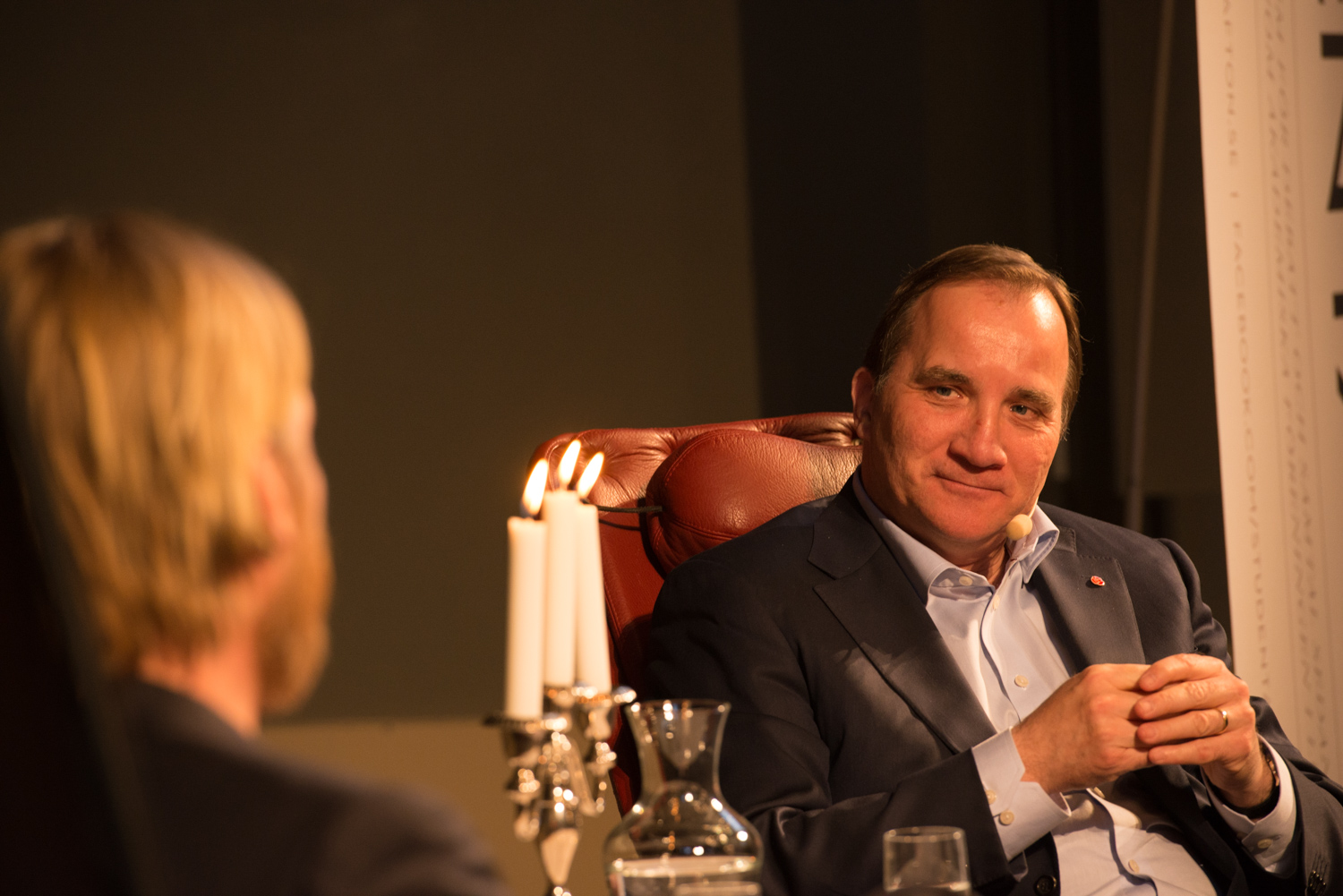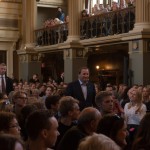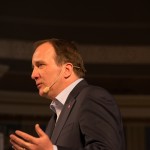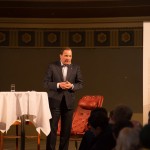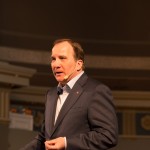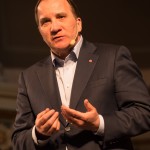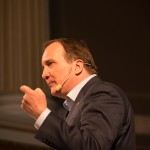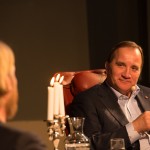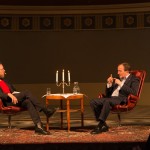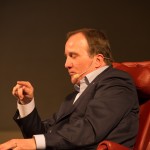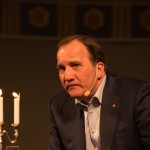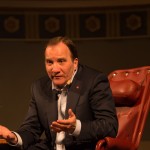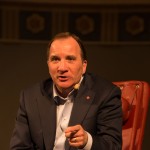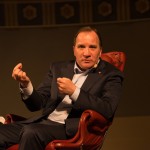Swedish prime minister Stefan Löfven guested Studentafton on Monday. The evening offered an introduction into Swedish politics: informality and – at least at the surface – a lack of political fireworks.
“Stefan will first give a short political pitch…”
Before he is invited to the stage, prime minister Stefan Löfven is referred to by his first name only: welcome to informality paradise Sweden. Studentafton, which has successfully invited all Swedish prime ministers since the 1950s, had to declare the event sold out several days early and the University Auditorium is filled to the brim with an audience that wants to know more about Sweden’s highest leader.
Löfven is a relative new-comer in Swedish politics and not yet known for having very pronounced standpoints. Only in 2012, he was asked to become the leader of the Socialist Party. When they became the largest party after last year’s elections, Löfven assumed the position of prime minister. “Intensive, and interesting,” are the words with which he describes his first months in office.
“It’s a lot of fun. As someone once said: ‘Being a prime minister is for ninety percent preventing catastrophes.’ You don’t know all you’re missing out on.”
Löfven’s early premiership might indeed be described as hectic. Directly after he came into office, his government’s first budget proposal was rejected. An almost unique situation, which forced him to threaten with re-elections, again a novelty in Swedish politics. Last-minute, he was saved with help of his political opponents.
This means that Löfven can finally start executing the plans he has for the country. While the previous government has, according to him, not done anything but lowering taxes, he has “a pragmatic stand towards taxes”. In his opening pitch, he takes up several plans related to student life: he want to solve the lack of housing.
“Young people shouldn’t have to start their adult life by sleeping in a tent.”
He also promises to invest in the railroads, both to ensure better connections and to contribute to lower CO2-pollution.
In the open question round, the audience is kind to Löfven: it seems that he is given credit for being in office only so shortly. Some of the questions might be stereotyped as “typically Swedish”. The issue of equality on the job market for men and women comes back several times and was also mentioned in Löfven’s opening address. Löfven considers it one of the three most important parts of his political program.
“It’s about jobs, education and equality.”
The evening ends without any political fire – and with questions remaining on Löfven’s life. While his interviewer, Kristoffer Triumf, tries to get spontaneous answers from the prime minister and discover the man behind the politician, it doesn’t go unnoticed that it’s mainly his own jokes that make the audience laugh, not Löfven’s answers. Löfven refers a few times to his personal life, but never one feels like coming really close.
No, here speaks a prime minister, a friendly one, but very much a politician. Time will tell whether he’ll also be considered a good one.
FACTS
- Stefan Löfven (1957) has been the leader of the Socialist Party since 2012. Before that, he worked as a welder and after that he pursued career within the union movement. Löfven never finished higher education: he studied social work, but dropped out prematurely.
- Löfven’s government consists of his own Socialist Party and of the Green Party. The third left-wing party, the Leftist Party, didn’t want to join his government. But even with them, the government would not have received a majority. Neither does the right-wing block (“The Civil Alliance”) have more than 50 percent behind them. The nationalist and anti-immigrant Sweden Democrats gained ten percent of the votes, which means that either block needs their support for a majority.
- When the Sweden Democrats soon after the elections said that they would vote against any proposals of the new government if they wouldn’t install more strict immigrations laws, this directly created pressure on Löfven’s fresh government. New elections were planned for March, but just after Christmas, the Civil Alliance decided to support the Löfven government to put the Sweden Democrats at the sideline. This December Agreement has saved the country from re-elections. However, critical voices now rise in the Civil Alliance: haven’t they, in their effort to block the Sweden Democrats, given in too much to the left-wing government?

